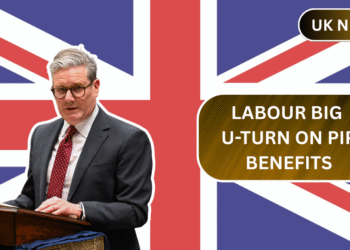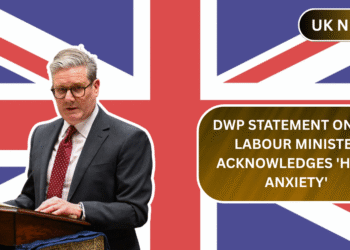A new government proposal could cost thousands of workers and pensioners across the UK an extra £500 a year in taxes, according to recent reports. The Department for Work and Pensions (DWP) is reportedly working with HM Revenue and Customs (HMRC) to recover unpaid National Insurance (NI) contributions, and the plan may affect millions—especially those approaching retirement.
What’s the Plan?
This Article Includes
Under this proposal, people who received National Insurance credits without paying actual NI contributions might be asked to pay back some of the amount in the form of higher taxes.
This could impact people who:
- Claimed Universal Credit
- Took time off work due to illness or caregiving
- Had low earnings or part-time jobs
- Received NI credits during gaps in employment
The DWP and HMRC believe some people received NI credits without contributing enough to qualify for a full State Pension. These credits count towards your pension eligibility. But now, the government might recheck and remove or reduce credits that were previously counted, which could lead to reduced pension entitlement or require extra payments.
How Could This Affect You?
For many, this could lead to a surprise loss of pension income—or even a tax bill if the government decides to claw back the value of these credits.
The average cost? Up to £500 a year in additional taxes or lost pension value, especially for those who are nearing retirement or are already retired.
Why Is This Happening Now?
The move comes as the UK government looks to reduce costs and increase revenue without raising general tax rates. By targeting potential over-crediting in the pension system, officials believe they can balance fairness in who receives what from the state.
But critics argue it’s a “stealth tax” on the working class and pensioners, punishing people who took time off for valid reasons like illness or childcare.
Who’s Most at Risk?
This plan might affect:
- Women who took time off for maternity leave
- Low-income earners who didn’t meet the full threshold for NI
- Unemployed individuals who received credits through Universal Credit
- Self-employed workers with low profits
If you fall into these categories and are relying on NI credits for your State Pension, it’s important to stay updated and check your National Insurance record.
What Can You Do?
For now, this is still under review, and no official tax bills have been sent. But financial experts recommend:
- Checking your NI record online
- Contacting DWP if you suspect your credits may be affected
- Speaking with a financial advisor if you’re close to retirement age
If the plan goes ahead, it could affect millions of pensioners and future retirees.
Expert Reaction
Many retirement groups and financial experts have raised concerns. They say this move could undermine trust in the state pension system and disproportionately affect vulnerable groups.
A spokesperson from a UK pensioner advocacy group said:
“People planned their futures based on the idea that these credits were solid. Changing that now is unfair and will catch many off-guard.”
Final Word
The proposed DWP and HMRC plan could mean that workers and pensioners pay more taxes or receive less pension than expected. While it’s not finalized yet, it’s a strong reminder to review your pension status and stay informed about changes to the system.






















